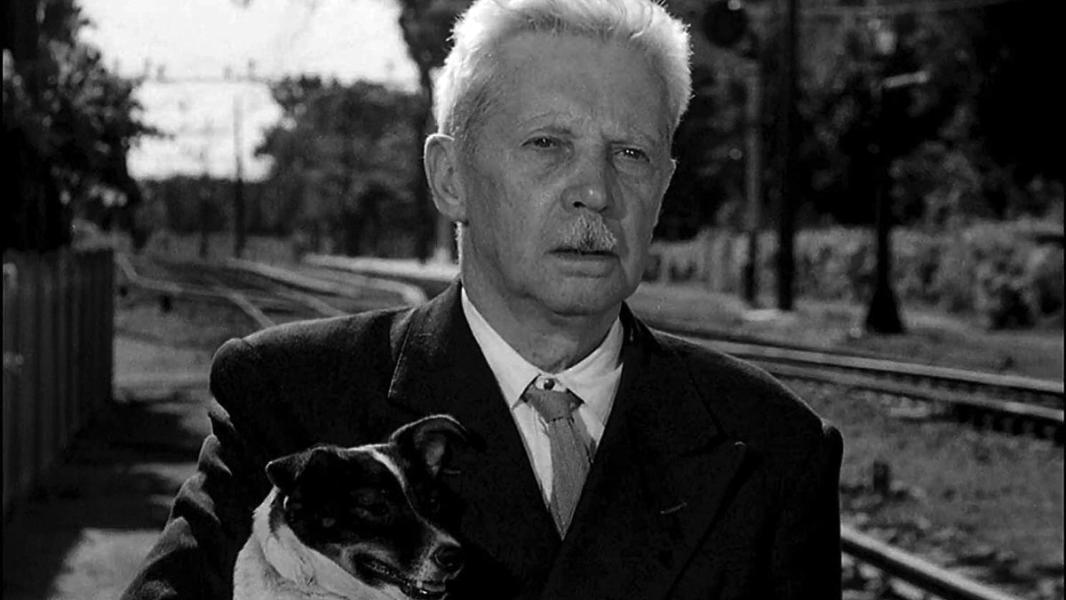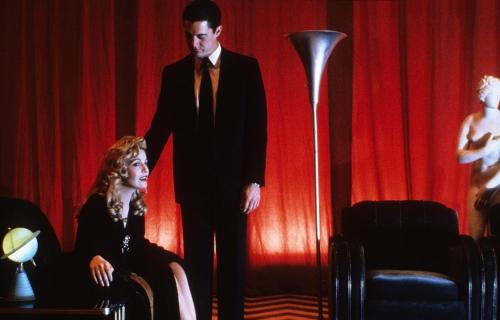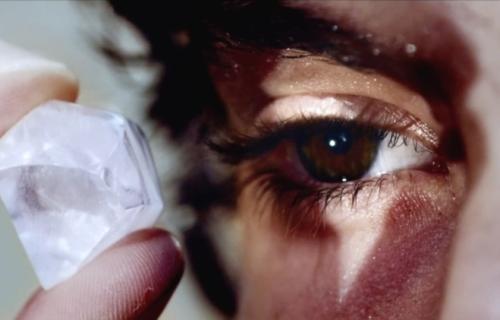
english below
UMBERTO D. kwam voor regisseur Vittorio De Sica als antwoord op een verlangen om diepzinniger werk af te leveren, na een carrière als acteur in komische en romantische rollen. Hij voelde een noodzaak om het filmische te zoeken in gewone gebeurtenissen van ongewone schoonheid. De neorealistische film vertelt het verhaal van een gepensioneerde man en zijn hond die uit hun sociale appartement worden gezet en moeten vechten om te overleven. UMBERTO D. is een ontroerend en empathisch portret dat een blik werpt op de levens van vergeten mensen aan de rand van de maatschappij. De Sica’s ode aan menselijke weerbaarheid is een van de grote humanistische werken uit de filmgeschiedenis, waarin onbesproken helden zoals Umberto een gezicht krijgen.
Voor een belangrijk deel van de acteurs was deze film hun eerste acteerervaring, zoals voor Carlo Battisti, die overtuigend het titelpersonage vertolkt. Regisseur Ingmar Bergman noemde de film “a movie I have seen a hundred times, that I may love most of all.” Critici noemden de keuze om de liefdevolle band tussen Umberto en zijn hond Flike te tonen een nodeloze sentimentele ingreep. Maar zij vergeten één ding: a dog is a man’s best friend. Niet in het minst in tijden van wanhoop.
ENG
This film is in Italian with English subtitles
UMBERTO D. was made by director Vittorio De Sica as a response to a desire to deliver more profound work, after a career as an actor in comic and romantic roles. He felt a need to seek the cinematic in ordinary events of unusual beauty. This neorealist film tells the story of a retired man and his dog who are evicted from their social flat and have to fight to survive. UMBERTO D. is a moving and empathetic portrait that offers a glimpse into the lives of forgotten people on the fringes of society. De Sica's ode to human resilience is one of the great humanist works of cinema history, in which unsung heroes like Umberto are given a face.
For a significant number of the actors, this film was their first acting experience, such as for Carlo Battisti, who convincingly plays the titular character. Director Ingmar Bergman called the film ‘a movie I have seen a hundred times, that I may love most of all.’ Critics called the choice to show the loving bond between Umberto and his dog Flike a needless sentimentality. But they forget one thing: a dog is a man's best friend. Not least in times of despair.



